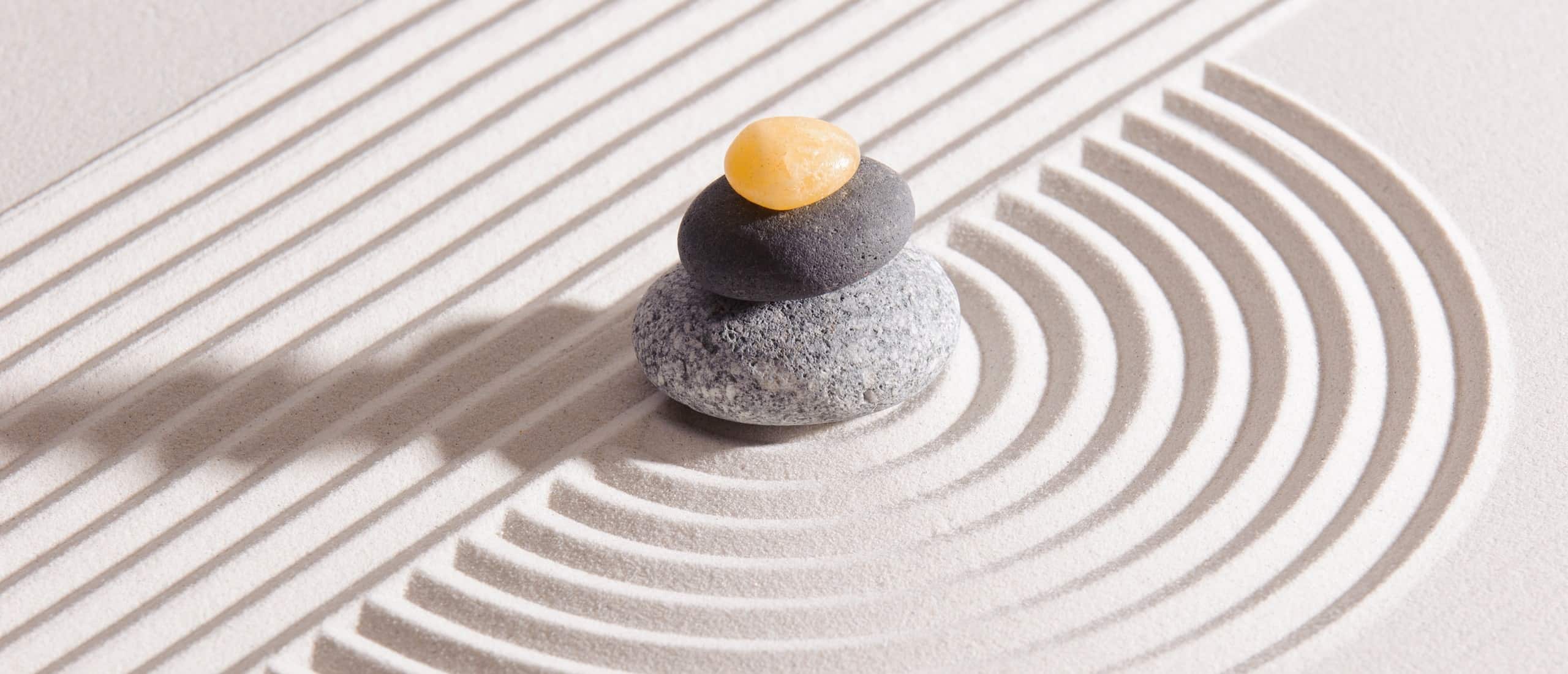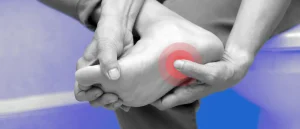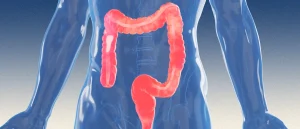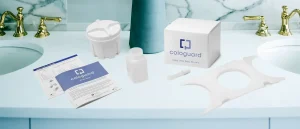30 Scientifically-Effective Ways to Relieve Stress
The stress is killing me. Honestly, a lot of us have said something to that effect at one time or another. On most occurrences, it’s an overstatement. It’s no exaggeration, however, to state that stress can take a considerable toll on your physical, mental and emotional health.
The physical effects of stress are well-documented — headaches, joint and muscle stiffness, fatigue, sleep disorders, sexual dysfunction, immune and digestive troubles, as well as increased risk of hypertension, cardiovascular issues and diabetes. So are the mental and emotional problems, including anxiety, feeling overwhelmed, unable to concentrate, irritability, mood swings, social isolation and depression.
Anxiety can also create a harmful, somewhat cyclical effect with our hormones. The body can perceive anxiousness as a threat, so it releases stress hormones like cortisol, epinephrine and adrenaline to help deal with the problem. Unfortunately, the constant release of these stress hormones can shut down what they deem to be “nonessential” functions in the body, including the production of testosterone. Worse, when your body notices it’s not making testosterone, it may reply by increasing your production of cortisol.(1)
So, how can we cope with feeling unable to cope? First, relax. It can be challenging, but it’s not impossible. There are ways we can go about reducing our stress and anxiety. In fact, here are 30 of them.
Related: The Rules Healthy Men Should Follow
Immediate Stress Relievers
It’s not quite so bad when our stress levels are temporary; we eventually recover from the resulting duress, and our mind and body get back to their normal, everyday business. In fact, short bursts of anxiety can even help us be more attentive and perform better.
It’s a different story with chronic stress. When the pressure and anxiety feel unrelenting, the body eventually has trouble deciding when or if it’s okay to start functioning “normally” again. Of course, our stress often comes at very inopportune times, when we can’t just pull away from everything and reset ourselves. So it’s handy to know of some methods that can be done easily and anywhere to effectively reduce anxiety and enable us to refocus.
RELAXATION TECHNIQUES
When our bodies go into “high alert” mode, the increased output of stress hormones can sometimes make us feel like our blood is boiling. Let’s look at some relaxation methods which can help quickly lower your blood pressure and steady your heart rate.
1. Deep breathing. Keeping it simple can often be the best way to go. You already know how to breathe; here, you’ll consciously take deep breaths through your nose, until your abdomen fills up, then breathe out slowly through your mouth. Focusing on deep breathing can go a long way toward relieving stress and anxiety, lowering blood pressure, improving mood and even helping treat eating disorders.(2)
2. Progressive muscle relaxation (PMR). Start with a few deep breaths, then tense and relax individual muscle groups throughout the body. Research shows(3) that it’s a great way to bring on the calm; if your body feels relaxed, anxiety levels and feelings of depression become greatly reduced. Don’t forget to breathe in when you tighten the muscles and breathe out when you relax them.
3. Do some math. For easing your worries, you can count on this technique, and in any number of ways. You can count slowly to 10 or 20 and then back, or you can count backward from 100. Make it even more interesting and count backward from 100 in increments of threes. Why math? Cortisol can impair your prefrontal cortex.(4) Doing something unnatural, like counting backwards, can tell your cortisol to chill out and kickstart your cortex back into action.
4. Guided imagery. Stressful environments can often prevent you from physically escaping to your “happy place.” However, studies show that visualizing positive, calm surroundings,(5) like a lake or a beach, can be very effective in providing peace of mind and body. While picturing yourself in one of those settings, add detail to various elements — for example, an ocean spray or peaceful sounds in a forest — to make your experience feel more real. If your brain believes it’s somewhere stress-free, it’ll communicate the message to your immune, endocrine and nervous systems.
5. Work in a quick stretch. You may find yourself too busy at work to head out to the gym or even take a prolonged break. Rather than add to your already-stressful workload, just do some simple stretching around your desk. It loosens tight muscles, improves circulation and promotes the release of endorphins, which can create feelings of euphoria. According to researchers, stretching not only can reduce workplace stress, but it can also decrease the pain(6) that people experience from sitting at a desk for too long.
6. Meditate. It may require some practice, but a few minutes of meditation(7) every day can become a short- and long-term way of bringing down stress levels. There are many different types of meditation programs(8) to choose from, but start off with something simple and reliable — get comfortable in a quiet spot, close your eyes, detach from other thoughts and silently repeat a word or phrase while slowly inhaling and exhaling. It helps keep your mind in the present and away from whatever’s stressing you out.
7. Chew some gum. Scientists say that chewing gum for a period of time helps elevate blood flow to the brain, and studies support that it can reduce stress levels while improving productivity, alertness and mood.(9)
8. Laugh it up. The world may not seem all that funny when you’re feeling frazzled, but there’s a lot of truth in the saying, “Laughter is the best medicine.” Training yourself to enjoy a genuine, hearty laugh(10) when things seem grim can boost your dopamine and serotonin levels, and reduce your levels of epinephrine, cortisol and growth hormone. It takes your mind off your problems, brightens your mood and provides a world of physical benefits, including improvements to your immune system, heart and lungs. When a project or problem stresses you out, try to find the humor in the situation.
SENSORY TECHNIQUES
It makes a great deal of sense that we can address our stress by using our five basic senses — sight, sound, touch, smell and taste. There are multiple studies out there that support how each receives sensory information that can help our body and mind cope within a tense, pressured environment. Here are just a few methods — some fast-acting, some not-so-fast but worth identifying here — in which our senses can help de-stress us.
9. Aromatherapy. Don’t knock the power of essential oils like peppermint, lavender, lemon and chamomile. Inhaling such scents are not only pleasing to our noses, but they can positively impact the amygdala,(11) a group of neurons in the brain that processes emotions like fear. In addition to decreasing stress hormones, aromatherapy is also effective at soothing headaches, improving your state of mind and clearing up brain fog. As a stress reliever, it certainly doesn’t stink.
10. Stay grounded. The 5-4-3-2-1 method is a mindfulness exercise in which you count backward and employ your senses to “ground” you in the present(12) and power you through stressful scenarios. Focusing on identifying the things around you will take your mind’s focus off the anxiety it’s experiencing. Just start with a deep breath, then acknowledge the following:
Five things you can see — the desk in front of you, a laptop, a picture on the wall, and so on
Four things you can feel or touch — the carpet or floor beneath you, the sun’s warmth, a pen, your clothes
Three things you can hear — traffic outside, your stomach grumbling, an air conditioner humming
Two things you can smell — coffee brewing, someone’s perfume; walk around if you can’t smell anything nearby
One thing you can taste — a mint, or maybe some tea you just made
11. Flotation-REST. If you feel like you’re drowning in stress and anxiety, consider immersing yourself in a flotation tank for restricted environmental stimulation therapy (REST). You’ll float weightlessly inside a dark, soundproof tank filled with about a foot of water that’s heated to body temperature and saturated with Epsom salt. Through sensory deprivation, REST has emerged as a scientifically proven method(13) for inducing deep relaxation, reducing stress and depression, lowering blood pressure and optimizing your quality of rest.
12. Biofeedback therapy. Any of us can benefit from a little feedback, so if you’re in need of stress management, noninvasive biofeedback therapy may be your solution. You’re hooked up to electrodes that measure for stress response through various body functions, such as breathing, heart rate and blood pressure. A monitor displays the results and, through different relaxation techniques (including PMR, meditation and guided imagery), your mind can help teach your body to learn to relax and control how it processes stress. Based on researchers’ feedback,(14) the technique has proven quite effective in significantly reducing stress, anxiety and depression.
13. Get a massage. Rub out your anxiety. A good massage can release endorphins, increase blood flow and raise body temperature.(15) When your body temperature rises, your heart rate lowers and your muscles become more relaxed and flexible, all of which helps toward reducing your stress levels. If you can’t swing the cost for a masseuse, don’t sweat it; using your own fingers to massage your hands(16) can release a lot of tension just as effectively.
14. Hug it out. It’s been said that one hug from the right person is all you need to take your stress away. Studies indicate there’s something to that — giving or receiving hugs motivates your hypothalamus to produce oxytocin.(17) Some people call it “the cuddle hormone,” but oxytocin is a neurotransmitter that, when released by the pituitary gland, can flood you with good feelings, help lower blood pressure and reduce the output of stress-producing norepinephrine. If you’re feeling emotionally strained, take a bonding moment and hug someone.
Habit Forming Stress Relievers
There are plenty of ways to quickly lower your anxiety, but most don’t necessarily provide long-term contentment. To achieve that, you need to go all in on techniques that require patience and take time to develop. Living as stress-free a life as possible means playing the long game — embracing creativity and new positive habits, and adjusting them along the way.
CREATIVITY TECHNIQUES
Deepak Chopra summed it up nicely: “The best use of imagination is creativity. The worst use of imagination is anxiety.” In other words, what makes us so creative and solution-oriented can just as easily become the same source of stress for our problems and worries. Since we’re all for investing in the creative part of this two-sided coin, here are some ideas to help get your productive juices flowing.
15. Take up art. Art therapy(18) is widely regarded as an exceptional method of drawing away stress from your body, according to researchers. A 2016 study reported that cortisol levels in approximately 75 percent of its participants had dropped significantly after 45 minutes of dedicated art making. Worried that you’re no Picasso? No problem — besides becoming quite popular with adults, coloring(19) has been found to calm your amygdala and induce a meditative-like state.
16. Play your stress off. Whether you engage in team sports,(20) solve jigsaw puzzles(21) or construct uber-complex LEGO sets,(22) playing releases stress-combatting endorphins. Plus, it helps put you in a state of mindfulness that can boost your problem-solving skills and self-motivation.
17. Take up music lessons. The brain is much like a muscle in that if you “exercise” it, you strengthen its resistance to the effects of stress and aging. Playing a musical instrument does all of that, plus it can lower blood pressure and heart rate while strengthening just about every part of your brain,(23) including cognitive function as well as your visual, auditory and motor areas. You can’t go wrong with taking up any instrument — it can be a guitar, bagpipes, drums, oboe, whatever — though some studies strongly suggest that a piano or keyboard(24) may be the most effective anxiety-relievers.
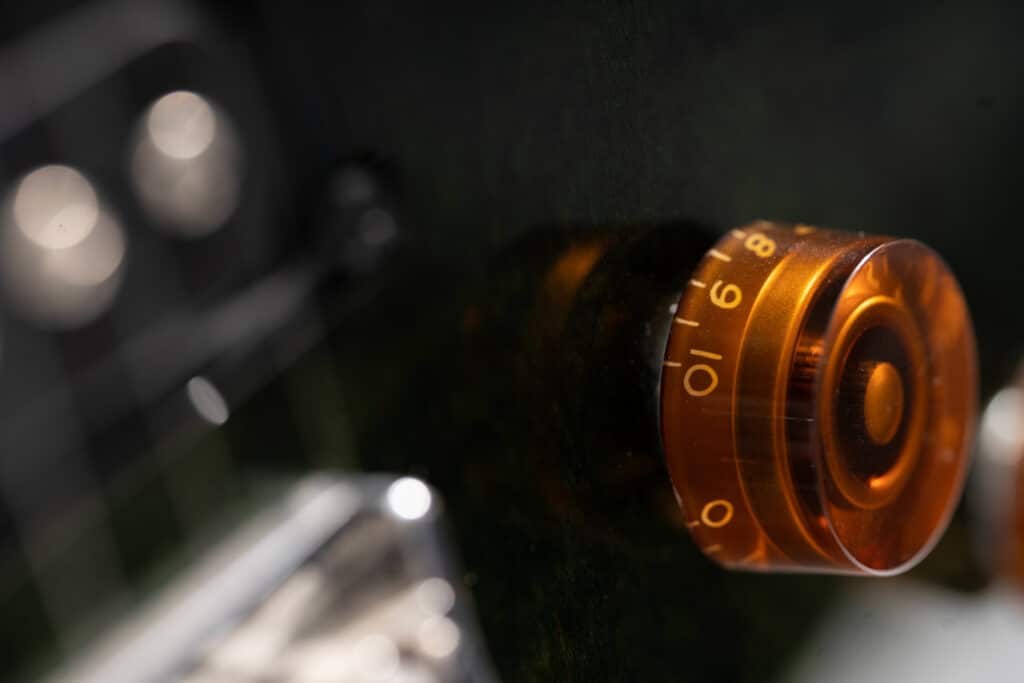
DIET AND EXERCISE
There really is no debate — our bodies and minds are intertwined in ways that we’ve only begun to scratch the surface of. That includes how we cope with the everyday strain life can put on us. Thankfully, there are a ton of studies that support how keeping physically active and following a balanced, nutritious diet can positively impact the way we deal with that mental and emotional pressure.
18. Walk it off. Walking is something that so many of us take for granted, but we may not realize how beneficial it can be at quelling anxiety and depression.(25) It’s easy to do and quick to start working, plus it gives you a few minutes to pull away from the stressor and collect yourself. Even the simple process of putting your foot to the ground can increase your blood flow to the brain.(26) This, in turn, can help multiple functions within the body, including how it processes your stress.
19. Make some tea or coffee. A warm beverage can be very soothing during times of stress. Coffee and tea are each filled with disease-fighting antioxidants, and both can enhance dopamine production, which can moderate levels of anxiety.(27) Tea, particularly green tea, is also rich in L-Theanine,(28) an amino acid that’s great for alleviating anger and stress. The positive effects can take some time to kick in(29) — usually 30 minutes to an hour — and you’ll want to be mindful of drinking too much coffee; over-caffeinating can leave you craving more to feel good, cause large mood swings, hurt your sleep habits and actually elevate your anxiety.
20. Have more sex. Hey, it’s a fun form of exercise, and it’s great for taking your mind off the pressures of your job or life in general. Anxiety can lower your testosterone and dampen your libido, but if you can muster the energy to forge ahead in bed with a loved one, you’ll find that sex can boost stress-relieving endorphins and other hormones. Sexual activity also releases oxytocin during orgasm,(30) which helps move sperm but can also improve your pain threshold, decrease cortisol levels and regulate blood pressure.(31)
21. Eat a piece of chocolate. A small, daily amount of dark chocolate can make it easier for you to cope with stress. That’s because the tasty morsel contains antioxidants and flavonoids(32) that offer up a ton of health benefits — it can help combat inflammation, boost heart health, increase energy and decrease cortisol production. Furthermore, dark chocolate’s cocoa flavonols can improve cognitive function and curb age-related memory loss.(33)
22. Aerobic exercises. Walking and yoga also fit this category, but it’s worth pointing out that any type of cardiovascular conditioning is great for alleviating anxiety. Aerobic exercises like swimming, running, cycling, rowing and skiing get your heart pumping and your circulation moving. Some research also indicates they’re also more effective than resistance training(34) in helping your body recover from stress and protecting it against age-related heart disease. (Though we’re not knocking resistance training at all; plenty of studies support how it can benefit your mood(35) by balancing neurotransmitters like serotonin and dopamine.)
23. Eat more omega-3s. They may be polyunsaturated fatty acids (PUFA), but omega-3s could be what you need to starve your anxiety. Often derived from fish oil, omega-3s are found within our brain membranes, which maintain healthy brain cells. Their efficacy in treating mood disorders(36) is well documented, and a 2014 review of 19 separate studies(37) revealed that participants who took high doses of omega-3 showed the greatest reductions in anxiety.
24. Drink less alcohol. There are some who think drinking can reduce your stress levels; the reality is, all it may be doing is temporarily changing the way you perceive or respond to stress. Heavy booze intake and stress are like a bad couple that refuse to realize they should have broken up a long time ago. Drinking elevates your body’s production of adrenaline and cortisol.(38) That drives up your stress levels which, in turn, may prompt you to order another round. There’s no true relief at the bottom of that bottle, so opt for other ways to bring more calm into your life.
25. Yoga. Perhaps more than anything else on our list, yoga is regarded by many to be the ultimate de-stressor. A Hindu discipline of mind, body and spirit, yoga combines meditation with physical stretching and posing to release stress and induce relaxation. It can be extremely effective in treating many aspects of your wellbeing — documented benefits can include improved physical conditioning and healthy eating habits, better quality sleep, less inflammation within the body, greater balance, and stronger mental and emotional health. Whether you choose to take up Kundalini,(39) Ashtanga,(40) Vinyasa,(41) Hatha(42) or another type of yoga, studies have also found that regular practitioners have lower cortisol levels.(43)
REDUCTION OF STRESSORS
Let’s be honest — there’s no way we can completely eliminate stress from our lives, and that’s okay. A little stress kicks in the stress hormones during “fight-or-flight” situations, keeping our brains sharp while also boosting performance and health. However, if we worry that our anxiety may overwhelm us, let’s keep in mind a few ways to keep the stress levels down, if not gone, more often than not.
26. Start a journal. The power of writing is so underrated, and it can be a great method for managing or reducing your stress. Writing down what you’re thinking, describing how a stressful situation makes you feel, or providing aspects on what you can be grateful for at the end of each day can help address the root of a problem, improve your mood and recognize symptoms that consistently trigger your anxiety. A 2018 study(44) showed reduced levels of depression and anxiety in the majority of 70 adults after one month of positive affect journaling for 15 minutes a day.
27. Sleep more. Much of how we begin our day can depend on how we ended our night before. It’s truly eye-opening to discover how connected sleep and stress can be — according to the Centers for Disease Control and Prevention (CDC), more than 35 percent of Americans(45) sleep less than the minimal recommendation of seven hours per night. Stress can keep the mind working and “over-alert” even when you’re trying to shut down for the night; in return, sleep deprivation(46) can compromise your physical health, plus make you less functional, less attentive and more prone to bouts of anxiety. Go with the minimum seven hours of slumber, plus wake up and turn in at the same time every day. Exercise and meditation can also help your sleep habits, which in the long run can help you manage your stress.
28. Stop checking emails, texts and social media. We live in an age where almost everything is communicated on our computers, tablets or smartphones — emails, texts and social media among them. We can’t, nor should we, try to escape them, but let’s also not ignore their drawbacks. Multiple studies have found how too much time on emails(47) — especially the dozens of unread ones sitting in your inbox — can heighten our anxiety. For an episode of 60 Minutes, while hooked up to a computer, Anderson Cooper showed(48) just how much his cortisol levels spiked whenever his smartphone went off. Another analysis(49) concluded that reviewing and reacting to posts on social media accounts is adversely impacting people’s emotional responses and reactions to perceived stress. Setting time limits on electronic devices, emailing and posting on social may prove difficult at first, but it can go a long way toward keeping your mental wellbeing healthy.
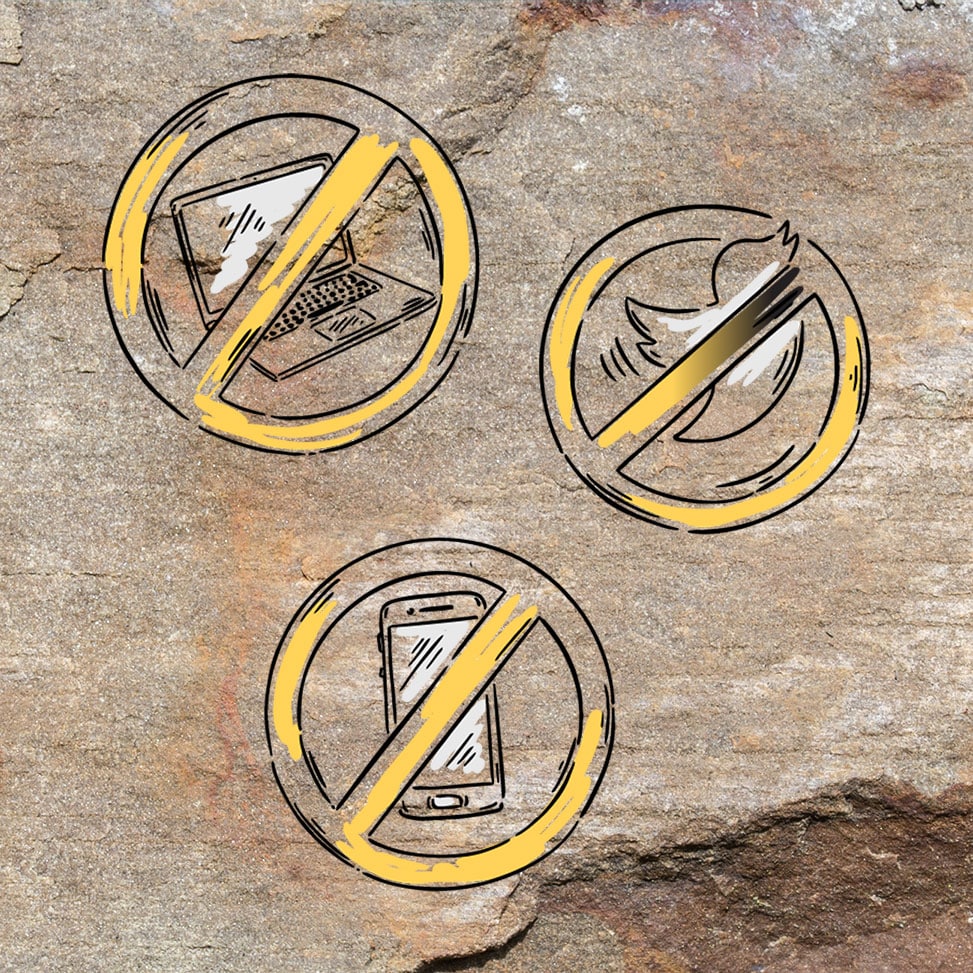
29. Redo your to-do lists. To-do lists(50) can be great at keeping the stress down. The problem is that many people tend to write quick, shorthand to-dos that can devolve into vague directions that don’t provide enough context about what needs to be accomplished. Producing such lists runs the risk of you packing too much into your daily agenda, thereby increasing the anxiety you sought to reduce. Really assess if your to-do lists are accomplishing their objectives. Organize your itineraries, specify and itemize the tasks at hand, and pare down which of those tasks are higher priority than others. It will make you a lot more productive and, hopefully, a lot less anxious.
30. Connect with others. Stress can make us feel a need to “shut down” and be alone with our thoughts. Sometimes that’s necessary, but doing that too often can do more potential harm than good — a 2018 review(51) of multiple studies found that social isolation was closely associated with increased cortisol levels, anxiety and depression, as well as heightened risk of elevated blood pressure, coronary disease and stroke. It may not solve the problems that are the source of your stress, but opening up to someone you know and trust, whether a family member or friend, or a work peer or health professional whose opinion you value, is a tremendous benefit to your overall welfare. Another option is to consider volunteering(52) somewhere, which may help to establish a social network that can also yield great physical, mental and emotional health benefits.
No matter what you choose, just remember this when things seem bad: You aren’t alone.
References:
Knight EL, Christian CB, Morales PJ, Harbaugh WT, Mayr U, Mehta PH. Exogenous testosterone enhances cortisol and affective responses to social-evaluative stress in dominant men. Psychoneuroendocrinology. 2017 Nov;85:151-157. doi: 10.1016/j.psyneuen.2017.08.014. Epub 2017 Aug 18. PMID: 28865351; PMCID: PMC5798202.
Hamasaki H. Effects of Diaphragmatic Breathing on Health: A Narrative Review. Medicines (Basel). 2020 Oct 15;7(10):65. doi: 10.3390/medicines7100065. PMID: 33076360; PMCID: PMC7602530.
Li Y, Wang R, Tang J, Chen C, Tan L, Wu Z, Yu F, Wang X. Progressive muscle relaxation improves anxiety and depression of pulmonary arterial hypertension patients. Evid Based Complement Alternat Med. 2015;2015:792895. doi: 10.1155/2015/792895. Epub 2015 Apr 1. PMID: 25922614; PMCID: PMC4397496.
Arnsten AF. Stress signalling pathways that impair prefrontal cortex structure and function. Nat Rev Neurosci. 2009 Jun;10(6):410-22. doi: 10.1038/nrn2648. PMID: 19455173; PMCID: PMC2907136.
Felix MMDS, Ferreira MBG, Oliveira LF, Barichello E, Pires PDS, Barbosa MH. Guided imagery relaxation therapy on preoperative anxiety: a randomized clinical trial. Rev Lat Am Enfermagem. 2018 Nov 29;26:e3101. doi: 10.1590/1518-8345.2850.3101. PMID: 30517586; PMCID: PMC6280172.
Marangoni AH. Effects of intermittent stretching exercises at work on musculoskeletal pain associated with the use of a personal computer and the influence of media on outcomes. Work. 2010;36(1):27-37. doi: 10.3233/WOR-2010-1004. PMID: 20555173.
Manocha R, Black D, Sarris J, Stough C. A randomized, controlled trial of meditation for work stress, anxiety and depressed mood in full-time workers. Evid Based Complement Alternat Med. 2011;2011:960583. doi: 10.1155/2011/960583. Epub 2011 Jun 7. PMID: 21716708; PMCID: PMC3118731.
Goyal M, Singh S, Sibinga EM, Gould NF, Rowland-Seymour A, Sharma R, Berger Z, Sleicher D, Maron DD, Shihab HM, Ranasinghe PD, Linn S, Saha S, Bass EB, Haythornthwaite JA. Meditation programs for psychological stress and well-being: a systematic review and meta-analysis. JAMA Intern Med. 2014 Mar;174(3):357-68. doi: 10.1001/jamainternmed.2013.13018. PMID: 24395196; PMCID: PMC4142584.
Smith A. Effects of chewing gum on cognitive function, mood and physiology in stressed and non-stressed volunteers. Nutr Neurosci. 2010 Feb;13(1):7-16. doi: 10.1179/147683010X12611460763526. PMID: 20132649.
JongEun Yim. Therapeutic Benefits of Laughter in Mental Health: A Theoretical Review. The Tohoku Journal of Experimental Medicine, 2016, Volume 239, Issue 3, Pages 243-249. Released July 16, 2016. Online ISSN 1349-3329. Print ISSN 0040-8727. https://doi.org/10.1620/tjem.239.243.
Sowndhararajan K, Kim S. Influence of Fragrances on Human Psychophysiological Activity: With Special Reference to Human Electroencephalographic Response. Sci Pharm. 2016 Nov 29;84(4):724-751. doi: 10.3390/scipharm84040724. PMID: 27916830; PMCID: PMC5198031.
Imran A (2020) Combat against Stress, Anxiety and Panic Attacks: 5-4-3-2-1 Coping Technique. J Trauma Stress Disor Treat 9:4.
Kjellgren A, Westman J. Beneficial effects of treatment with sensory isolation in flotation-tank as a preventive health-care intervention – a randomized controlled pilot trial. BMC Complement Altern Med. 2014 Oct 25;14:417. doi: 10.1186/1472-6882-14-417. PMID: 25344737; PMCID: PMC4219027.
Ratanasiripong P, Kaewboonchoo O, Ratanasiripong N, Hanklang S, Chumchai P. Biofeedback Intervention for Stress, Anxiety, and Depression among Graduate Students in Public Health Nursing. Nurs Res Pract. 2015;2015:160746. doi: 10.1155/2015/160746. Epub 2015 Apr 14. PMID: 25954515; PMCID: PMC4411437.
Nazari F, Mirzamohamadi M, Yousefi H. The effect of massage therapy on occupational stress of Intensive Care Unit nurses. Iran J Nurs Midwifery Res. 2015 Jul-Aug;20(4):508-15. doi: 10.4103/1735-9066.161001. PMID: 26257809; PMCID: PMC4525352.
Field T, Diego M, Delgado J, Garcia D, Funk CG. Hand pain is reduced by massage therapy. Complement Ther Clin Pract. 2011 Nov;17(4):226-9. doi: 10.1016/j.ctcp.2011.02.006. Epub 2011 Mar 15. PMID: 21982138.
Uvnäs-Moberg K, Handlin L, Petersson M. Self-soothing behaviors with particular reference to oxytocin release induced by non-noxious sensory stimulation. Front Psychol. 2015 Jan 12;5:1529. doi: 10.3389/fpsyg.2014.01529. PMID: 25628581; PMCID: PMC4290532.
Kaimal G, Ray K, Muniz J. Reduction of Cortisol Levels and Participants’ Responses Following Art Making. Art Ther (Alex). 2016 Apr 2;33(2):74-80. doi: 10.1080/07421656.2016.1166832. Epub 2016 May 23. PMID: 27695158; PMCID: PMC5004743.
Mantzios M, Giannou K. When Did Coloring Books Become Mindful? Exploring the Effectiveness of a Novel Method of Mindfulness-Guided Instructions for Coloring Books to Increase Mindfulness and Decrease Anxiety. Front Psychol. 2018 Jan 30;9:56. doi: 10.3389/fpsyg.2018.00056. PMID: 29441038; PMCID: PMC5797627.
Pluhar E, McCracken C, Griffith KL, Christino MA, Sugimoto D, Meehan WP 3rd. Team Sport Athletes May Be Less Likely To Suffer Anxiety or Depression than Individual Sport Athletes. J Sports Sci Med. 2019 Aug 1;18(3):490-496. PMID: 31427871; PMCID: PMC6683619.
Fissler P, Küster OC, Laptinskaya D, Loy LS, von Arnim CAF, Kolassa IT. Jigsaw Puzzling Taps Multiple Cognitive Abilities and Is a Potential Protective Factor for Cognitive Aging. Front Aging Neurosci. 2018 Oct 1;10:299. doi: 10.3389/fnagi.2018.00299. PMID: 30327598; PMCID: PMC6174231.
Shields, Margaret M. et al. “Building Blocks and Coloring Away Stress: Utilizing Lego® and Coloring as Stress Reduction Strategies among University Students.” Journal of Health Education 11 (2020): 24-31.
Schneider CE, Hunter EG, Bardach SH. Potential Cognitive Benefits From Playing Music Among Cognitively Intact Older Adults: A Scoping Review. J Appl Gerontol. 2019 Dec;38(12):1763-1783. doi: 10.1177/0733464817751198. Epub 2018 Jan 23. PMID: 29361873.
Shipman D. A Prescription for Music Lessons. Fed Pract. 2016 Feb;33(2):9-12. PMID: 30766157; PMCID: PMC6368928.
Sharma A, Madaan V, Petty FD. Exercise for mental health. Prim Care Companion J Clin Psychiatry. 2006;8(2):106. doi: 10.4088/pcc.v08n0208a. PMID: 16862239; PMCID: PMC1470658.
Experimental Biology 2017. “How walking benefits the brain: Researchers show that foot’s impact helps control, increase the amount of blood sent to the brain.” ScienceDaily. ScienceDaily, 24 April 2017.
[27] Zarrindast MR, Khakpai F. The Modulatory Role of Dopamine in Anxiety-like Behavior. Arch Iran Med. 2015 Sep;18(9):591-603. PMID: 26317601.
Hidese S, Ogawa S, Ota M, Ishida I, Yasukawa Z, Ozeki M, Kunugi H. Effects of L-Theanine Administration on Stress-Related Symptoms and Cognitive Functions in Healthy Adults: A Randomized Controlled Trial. Nutrients. 2019 Oct 3;11(10):2362. doi: 10.3390/nu11102362. PMID: 31623400; PMCID: PMC6836118.
Quinlan P, Lane J, Aspinall L. Effects of hot tea, coffee and water ingestion on physiological responses and mood: the role of caffeine, water and beverage type. Psychopharmacology (Berl). 1997 Nov;134(2):164-73. doi: 10.1007/s002130050438. PMID: 9399380.
Uvnas-Moberg K, Petersson M. Oxytocin, ein Vermittler von Antistress, Wohlbefinden, sozialer Interaktion, Wachstum und Heilung [Oxytocin, a mediator of anti-stress, well-being, social interaction, growth and healing]. Z Psychosom Med Psychother. 2005;51(1):57-80. German. doi: 10.13109/zptm.2005.51.1.57. PMID: 15834840.
Brody S. Blood pressure reactivity to stress is better for people who recently had penile-vaginal intercourse than for people who had other or no sexual activity. Biol Psychol. 2006 Feb;71(2):214-22. doi: 10.1016/j.biopsycho.2005.03.005. Epub 2005 Jun 14. PMID: 15961213.
Socci V, Tempesta D, Desideri G, De Gennaro L, Ferrara M. Enhancing Human Cognition with Cocoa Flavonoids. Front Nutr. 2017 May 16;4:19. doi: 10.3389/fnut.2017.00019. PMID: 28560212; PMCID: PMC5432604.
Brickman AM, Khan UA, Provenzano FA, Yeung LK, Suzuki W, Schroeter H, Wall M, Sloan RP, Small SA. Enhancing dentate gyrus function with dietary flavanols improves cognition in older adults. Nat Neurosci. 2014 Dec;17(12):1798-803. doi: 10.1038/nn.3850. Epub 2014 Oct 26. PMID: 25344629; PMCID: PMC4940121.
Spalding TW, Lyon LA, Steel DH, Hatfield BD. Aerobic exercise training and cardiovascular reactivity to psychological stress in sedentary young normotensive men and women. Psychophysiology. 2004 Jul;41(4):552-62. doi: 10.1111/j.1469-8986.2004.00184.x. PMID: 15189478.
Strickland JC, Smith MA. The anxiolytic effects of resistance exercise. Front Psychol. 2014 Jul 10;5:753. doi: 10.3389/fpsyg.2014.00753. PMID: 25071694; PMCID: PMC4090891.
Liao Y, Xie B, Zhang H, He Q, Guo L, Subramaniapillai M, Fan B, Lu C, Mclntyer RS. Efficacy of omega-3 PUFAs in depression: A meta-analysis. Transl Psychiatry. 2019 Aug 5;9(1):190. doi: 10.1038/s41398-019-0515-5. PMID: 31383846; PMCID: PMC6683166.
Su K, Tseng P, Lin P, et al. Association of Use of Omega-3 Polyunsaturated Fatty Acids With Changes in Severity of Anxiety Symptoms: A Systematic Review and Meta-analysis. JAMA Netw Open. 2018;1(5):e182327. doi:10.1001/jamanetworkopen.2018.2327.
Alcohol Alert Number 85. Alcohol Research: Current Reviews, 2012, Volume 34, Number 4.
García-Sesnich JN, Flores MG, Ríos MH, Aravena JG. Longitudinal and Immediate Effect of Kundalini Yoga on Salivary Levels of Cortisol and Activity of Alpha-Amylase and Its Effect on Perceived Stress. Int J Yoga. 2017 May-Aug;10(2):73-80. doi: 10.4103/ijoy.IJOY_45_16. PMID: 28546677; PMCID: PMC5433116.
Street, K. (2020). Effectiveness of Ashtanga and Vinyasa Yoga: Combating Anxiety, Depression, Stress and Sleep Quality. Theses and Dissertations Retrieved from https://scholarworks.uark.edu/etd/3816
Lemay V, Hoolahan J, Buchanan A. Impact of a Yoga and Meditation Intervention on Students’ Stress and Anxiety Levels. Am J Pharm Educ. 2019 Jun;83(5):7001. doi: 10.5688/ajpe7001. PMID: 31333265; PMCID: PMC6630857.
Benvenutti MJ, Alves EDS, Michael S, Ding D, Stamatakis E, Edwards KM. A single session of hatha yoga improves stress reactivity and recovery after an acute psychological stress task-A counterbalanced, randomized-crossover trial in healthy individuals. Complement Ther Med. 2017 Dec;35:120-126. doi: 10.1016/j.ctim.2017.10.009. Epub 2017 Oct 31. PMID: 29154056.
Katuri KK, Dasari AB, Kurapati S, Vinnakota NR, Bollepalli AC, Dhulipalla R. Association of yoga practice and serum cortisol levels in chronic periodontitis patients with stress-related anxiety and depression. J Int Soc Prev Community Dent. 2016 Jan-Feb;6(1):7-14. doi: 10.4103/2231-0762.175404. PMID: 27011926; PMCID: PMC4784068.
Smyth JM, Johnson JA, Auer BJ, Lehman E, Talamo G, Sciamanna CN. Online Positive Affect Journaling in the Improvement of Mental Distress and Well-Being in General Medical Patients With Elevated Anxiety Symptoms: A Preliminary Randomized Controlled Trial. JMIR Ment Health. 2018 Dec 10;5(4):e11290. doi: 10.2196/11290. PMID: 30530460; PMCID: PMC6305886.
Watson NF, Badr MS, Belenky G, Bliwise DL, Buxton OM, Buysse D, Dinges DF, Gangwisch J, Grandner MA, Kushida C, Malhotra RK, Martin JL, Patel SR, Quan SF, Tasali E. Recommended amount of sleep for a healthy adult: a joint consensus statement of the American Academy of Sleep Medicine and Sleep Research Society. J Clin Sleep Med 2015;11(6):591–592.
Morales J, Yáñez A, Fernández-González L, Montesinos-Magraner L, Marco-Ahulló A, Solana-Tramunt M, Calvete E. Stress and autonomic response to sleep deprivation in medical residents: A comparative cross-sectional study. PLoS One. 2019 Apr 4;14(4):e0214858. doi: 10.1371/journal.pone.0214858. PMID: 30947295; PMCID: PMC6448892.
Thomée S, Härenstam A, Hagberg M. Computer use and stress, sleep disturbances, and symptoms of depression among young adults–a prospective cohort study. BMC Psychiatry. 2012 Oct 22;12:176. doi: 10.1186/1471-244X-12-176. PMID: 23088719; PMCID: PMC3528646.
“Brain Hacking.” 60 Minutes, Jan. 2018.
[49] Rasmussen EE, Punyanunt-Carter N, LaFreniere JR, Norman MS, Kimball TG. The serially mediated relationship between emerging adults’ social media use and mental well-being. Computers in Human Behavior, Volume 102, 2020, Pages 206-213. ISSN 0747-5632. https://doi.org/10.1016/j.chb.2019.08.019.
Schrager S, Sadowski E. Getting More Done: Strategies to Increase Scholarly Productivity. J Grad Med Educ. 2016 Feb;8(1):10-3. doi: 10.4300/JGME-D-15-00165.1. PMID: 26913095; PMCID: PMC4763375.
Xia N, Li H. Loneliness, Social Isolation, and Cardiovascular Health. Antioxid Redox Signal. 2018 Mar 20;28(9):837-851. doi: 10.1089/ars.2017.7312. Epub 2017 Oct 23. PMID: 28903579; PMCID: PMC5831910.
Xia N, Li H. Loneliness, Social Isolation, and Cardiovascular Health. Antioxid Redox Signal. 2018 Mar 20;28(9):837-851. doi: 10.1089/ars.2017.7312. Epub 2017 Oct 23. PMID: 28903579; PMCID: PMC5831910.



